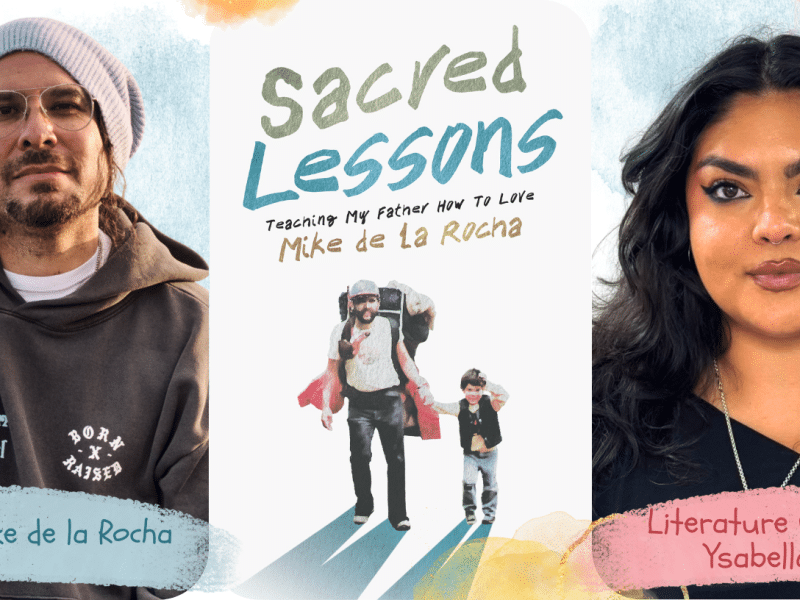Hollywood’s Inclusion Journey: Progress and Hurdles at the 2023 Oscars
Are you feeling out of touch with the latest Hollywood buzz? We’ve got you covered. Here’s everything you need to know about the 95th Academy Awards.

Are you feeling out of touch with the latest Hollywood buzz? We’ve got you covered. The 95th Academy Awards took place on March 12th, 2023, at the iconic Dolby Theatre in Los Angeles, celebrating the best films of 2022. And here’s everything everybody needs to know, all at once (wink, wink).
A Night Of Historic Wins and Firsts
Last night’s Academy Awards were one more small step towards proper representation and diversity in Hollywood. And while we may still have a long way to go, the 2023 Oscars undoubtedly saw an increase in recognition for non-white and international filmmakers.
The film “Everything Everywhere All at Once,”
dominated the awards with seven wins, including best picture, director, original screenplay, lead actress, supporting actress, supporting actor, and editing. Michelle Yeoh won Best Actress for her role in the film, Jamie Lee Curtis took home the award for Best Supporting Actress, and Ke Huy Quan won Best Supporting Actor. The film’s directors, Daniel Kwan and Daniel Scheinert, were also recognized with awards for their direction and original screenplay. These wins are a testament to the film’s exceptional storytelling, multi-racial cast, and creators who delivered powerful performances and messages throughout the night, becoming the most-awarded film since “Slumdog Millionaire.”
And we won’t soon forget Ke Huy Quan’s moving speech. From the Goonies to the Oscars, Quan’s commitment to his dream will inspire the masses for years to come.
Ruth E. Carter, the costume designer for “Black Panther: Wakanda Forever,” achieved a double Oscar win, becoming the first Black woman to achieve such an accomplishment. MM Keeravani brought Indian pride to the stage with his Best Original Song win for “Naatu Naatu” from the Indian Telugu-language film “RRR,” followed by an energetic performance of the much-loved song. Indian short documentary “The Elephant Whisperers,” directed by Kartiki Gonsalves and produced by Guneet Monga, also won Best Documentary Short.
Michelle Yeoh’s historic win as the first Asian woman to receive the Best Actress award for her lead role in “Everything Everywhere All at Once” was undoubtedly one of the night’s highlights, as her speech and later interview made the rounds on the internet.
Yeoh, born in Malaysia, became the very first Asian woman and only the second woman of color to receive this award, following Halle Berry’s win in 2002. In her acceptance speech, Yeoh expressed her gratitude to the Academy for embracing diversity and true representation, stating that she “kung-fu’d the glass ceiling.”
While this is a historic moment to celebrate, it’s important to remember that there have been countless international actors and films in the past that the Academy did not recognize, that should have been. And While Hollywood has made some strides toward inclusivity, accurate representation in the film industry still has a long way to go, especially for Latinos.
Despite Progress, Latinos Are Still Underrepresented
The lack of recognition for Latinos in Hollywood is a glaring issue in the film industry, especially when they are the largest ethnic or racial minority group in the US. It begs the question – why are their voices and stories consistently sidelined? It is a paradox that nearly one in five people in America is Latino, yet the industry has failed to recognize their contributions fully.
Nonetheless, the Latino community had reason to celebrate the nominations and victories of the Latinos who were present.
The talented Cuban actress Ana de Armas received her first Academy Award nomination for her captivating portrayal of Marilyn Monroe in “Blonde,” while Mexican director Alfonso Cuarón, who has already won four Academy Awards, was nominated once again for his exceptional work on “Le pupille.” The gripping historical drama “Argentina,1985” was also nominated for Best International Film, with Argentinean Santiago Mitre as director.
Mexican filmmaker Guillermo Del Toro made history by becoming the first person to win Academy Awards for Best Picture, Best Director, and Best Animated Feature – all for the same film. His adaptation of ‘Pinocchio’ cemented his legacy as a filmmaker who has shattered barriers and pushed the boundaries of storytelling.
Behind the scenes, Sylvia Villagran, a bilingual voice actress, became the first Latina announcer for the Oscars. As a first-generation Mexican in the United States, Villagran said she was thrilled to represent Latinos on such a prestigious platform and hopes to inspire a new generation of Latino creatives to pursue their dreams and make their mark on Hollywood.
A Moment That Sparked Debate
One particular moment from the night sparked a heated conversation about diversity and representation in Hollywood. We’re talking about Angela Bassett’s
reaction to losing the Best Supporting Actress award to Jamie Lee Curtis, which has since gone viral and sparked a debate about whether her response was “appropriate.”
The audience applauded when Jamie Lee was announced as the award winner, but Angela remained sitting and appeared unimpressed. Some viewers called her out for not immediately showing support for Jamie Lee, but others felt that Angela’s disappointment was entirely justified, given the Oscars’ history of underrepresentation
But the significance of Angela’s nomination goes beyond the moment itself. Only one Black woman, Halle Berry, has ever won the Best Actress award in the history of the Oscars. This stark lack of diversity among the award’s winners speaks to a much larger problem of underrepresentation and lack of recognition for people of color in the film industry.
In this context, Angela’s reaction takes on a more significant meaning. It represents the larger issue of systemic underrepresentation and highlights the importance of pushing for more diversity and recognition of people of color in the film industry. Angela’s refusal to hide her devastation has been hailed as a powerful statement against this problem.
The 95th Academy Awards provided a glimpse of progress toward a more diverse and inclusive Hollywood. However, the event also highlighted the deep-rooted diversity issues that continue to plague the film industry.




